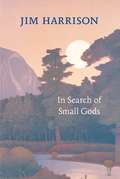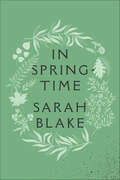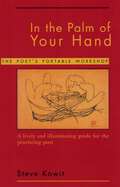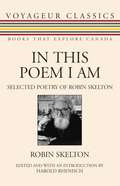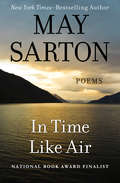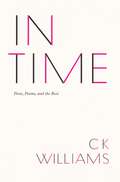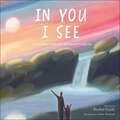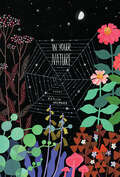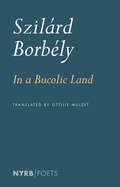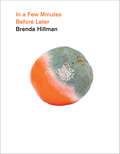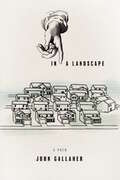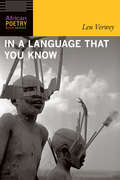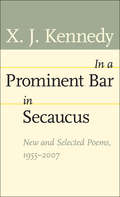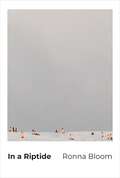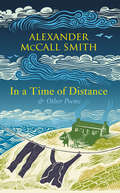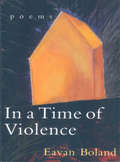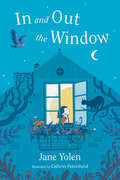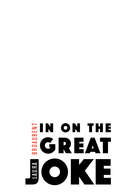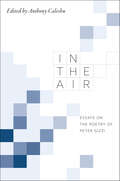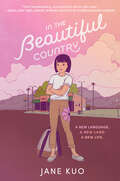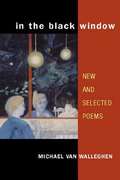- Table View
- List View
In Search of Small Gods
by Jim Harrison"Jim Harrison has probed the breadth of human appetites--for food and drink, for art, for sex, for violence and, most significantly, for the great twin engines of love and death. Perhaps no American writer better appreciates those myriad drives; since the publication of his first collection of poetry . . . Harrison has become their poet laureate."--Salon.comIn Jim Harrison's new book of poems, birds and humans converse, biographies are fluid, and unknown gods flutter just out of sight. In terrains real and imagined--from remote canyons and anonymous thickets in the American West to secret basements in World War II Europe--Harrison calls his readers to live fully in a world where "Death steals everything except our stories." In Search of Small Gods is an urgent and imaginative book--one filled with "the spore of the gods."Maybe the problem is that I got involved with the wrong crowd of gods when I was seven. At first they weren't harmful and only showed themselves as fish, birds, especially herons and loons, turtles, a bobcat and a small bear, but not deer and rabbits who only offered themselves as food. And maybe I spent too much time inside the water of lakes and rivers. Underwater seemed like the safest church I could go to . . .Jim Harrison is the author of thirty books of poetry, fiction, and nonfiction, including Legends of the Fall and Shape of the Journey. A long-time resident of Michigan, he now lives in Montana and Arizona.
In Springtime (Wesleyan Poetry Series)
by Sarah BlakeIn Sarah Blake's epic poem of survival, we follow a nameless main character lost in the woods. There, they discover the world anew, negotiating their place among the trees and the rain and the animals. Something brought them to the woods that nearly killed them, and they're not sure they want to live through this experience either. But the world surprises them again and again with beauty and intrigue. They come to meet a pregnant horse, a curious mouse, and a dead bird, who is set on haunting them all. Blake examines what makes us human when removed from the human world, what identity means where it is a useless thing, and how loss shapes us. In a stunning setting and with ominous dreams, In Springtime will take you into a magical world without using any magic at all—just the strangeness of the woods. Includes a stunning art feature by Nicky Arscott.7.If only the night held one dream instead of many.In the next dream you dig up the bird.In the next dream you dig in the same place and find a gun. You've shot someone. You weren't supposed to return to this place where you hid the gun.You're an idiot in your dream.In the next dream the horse returns. The horse startles you awake. But you are still asleep. Dreams are some wicked things.In the next dream you are in a desert. That's different.You forget what grass is. What it smells like. What the shadows of trees look like across your legs.You laugh your head off at the sight of a cactus.In the next dream you can see the spirit of the bird that will haunt you for weeks. Her tongue makes you think all of her words will come out garbled.Then you remember all she does is sing.
In The Palm Of Your Hand: The Poet's Portable Workshop
by Steve KowitAn illuminating and invaluable guide for beginners wary of modern poetry, as well as for more advanced students who want to sharpen their craft and write poems that expand their technical skills, excite their imaginations, and engage their deepest memories and concerns. Ideal for teachers who have been searching for a way to inspire students with a love for writing--and reading--contemporary poetry.
In Their Words
by Charlene Notgrass Ray Notgrass John NotgrassA collection of original documents, speeches, poems, and stories from different periods in history.
In This Poem I Am: Selected Poetry of Robin Skelton
by Robin Skelton Harold RhenischIn a country in which poetry has been largely private and apologetic, Robin Skelton played the part of poet with grand style: flowing beard, mane of white hair, rings on every finger, huge amulet around his neck, all topped off with a black hat that looked as if it came from a Venetian gondolier but was really picked up at the re-enactment of a Cariboo Gold Rush-era general store in Barkerville, B.C. In this selection of his best verse there are poems of "high" and "low" art, spells and prayers, meditations, shemanic maps, and, in the centre of the book, "messages," those strange, inspired "gifts" at the core of Skelton’s art. In making the selection for this volume, editor Harold Rhenisch, himself an accomplished poet, has held to the image that Skelton’s themes repeat like the ripples of water spreading out from a pebble dropped into a pool, and has attempted to bring together the best ripple from each dropped pebble.
In Time Like Air: Poems
by May SartonFinalist for the National Book Award: May Sarton at her evocative and contemplative bestThe title poem of this entrancing collection compares love to salt for its ability both to dissolve and to crystallize &“into a presence.&” At once philosophical and fiercely corporeal, this work presents emotion as a sensory experience. Written with Sarton&’s characteristic concision, these deeply felt poems will delight readers.
In Time: Poets, Poems, and the Rest
by C.K. WilliamsWinner of the National Book Award, the Pulitzer Prize for Poetry, and numerous other awards, C. K. Williams is one of the most distinguished poets of his generation. Known for the variety of his subject matter and the expressive intensity of his verse, he has written on topics as resonant as war, social injustice, love, family, sex, death, depression, and intellectual despair and delight. He is also a gifted essayist, and In Time collects his best recent prose along with an illuminating series of interview excerpts in which he discusses a wide range of subjects, from his own work as a poet and translator to the current state of American poetry as a whole. In Time begins with six essays that meditate on poetic subjects, from reflections on such forebears as Philip Larkin and Robert Lowell to “A Letter to a Workshop,” in which he considers the work of composing a poem. In the book’s innovative middle section, Williams extracts short essays from interviews into an alphabetized series of reflections on subjects ranging from poetry and politics to personal accounts of his own struggles as an artist. The seven essays of the final section branch into more public concerns, including an essay on Paris as a place of inspiration, “Letter to a German Friend,” which addresses the issue of national guilt, and a concluding essay on aging, into which Williams incorporates three moving new poems. Written in his lucid, powerful, and accessible prose, Williams’s essays are characterized by reasoned and complex judgments and a willingness to confront hard moral questions in both art and politics. Wide-ranging and deeply thoughtful, In Time is the culmination of a lifetime of reading and writing by a man whose work has made a substantial contribution to contemporary American poetry.
In You I See: A Story that Celebrates the Beauty Within
by Rachel EmilyEncourage young readers to use their imagination, and look within others, and themselves, to discover all that they have to offer.A stunningly illustrated children&’s picture book, with captivating poetic text by Rachel Moulden. It teaches your little ones that there is more to people than meets the eye, you just have to look.Children, who love nature and rhymes will adore this charming educational book, which includes: • Vibrant illustrations by Jodie Howard • Repetition, language, sounds and rhythm of rhyming text, helping children to develop their vocabulary and support their language development • A strong message that there is more to someone than meets the eye if you take the time to look Are you as joyful and bright as a daffodil? Or as bold and brave as a tiger? In You I See highlights and celebrates the colorful layers and attributes we all can have. With enthralling, rhyming text by singer-songwriter Rachel &“Maiday&” Moulden and gorgeous illustrations by Jodie Howard, this enchanting children&’s storybook brings the magic of rhyme and nature together.Whether you are looking for a bedtime storybook, a children&’s gift for a special occasion, or simply a book to share with your child, this delightful kid&’s book will make the perfect addition to the bookshelf. It includes cheerful, simple text that is perfect for reading together and out loud, which has many early learning benefits.
In Your Nature
by Estlin McPheePoems that show us a world in which precedent for gender transition is everywhere if you know how to look."I delete my history / badly," writes Estlin McPhee in this searing, witty, lyrical, and elegiac debut collection of poems about intersections of trans identity, magic, myth, family, and religion. The line refers at once to a young person's browser data that reveals an interest in gender transition; an adult's efforts to reconcile complicated relationships; a culture's campaign to erase queerness and transness from the historical record; and a religion's attempt to pretend that its own particular brand of miraculous transformation is distinct from the kind found in folktales or real life. Populated by transmasculine werewolves, homoerotic Jesuses, adolescent epiphanies, dutiful sisters, boy bands, witches, mothers who speak in tongues, and nonnas who cross the sea, this is a book in which relational and narrative continuity exists, paradoxically, as a series of ruptures with the known.
In a Bucolic Land
by Szilárd BorbélyA moving, posthumous collection of elegies and eclogues that meditate on nature, landscape, and history, by a great Hungarian poet.Szilárd Borbély spent his childhood in a tiny impoverished village in northeastern Hungary, where the archaic peasant world of Eastern Europe coexisted with the collectivist ideology of a new Communist state. Close to the Soviet border and far from any metropolitan center, the village was a world apart: life was harsh, monotonous, and often brutal, and the Borbélys, outsiders and &“class enemies,&” were shunned. In a Bucolic Land, Borbély&’s final, posthumously published book of poems, combines autobiography, ethnography, classical mythology, and pastoral idyll in a remarkable central poetic sequence about the starkly precarious and yet strangely numinous liminal zone of his youth. This is framed by elegies for a teacher in which the poet meditates on the nature of language and speech and on the adequacy of words to speak of and for the dead. Ottilie Mulzet&’s English translation conveys the full power of a writer of whom László Krasznahorkai has said, &“He was a poet—a great poet—who shatters us.&”
In a Few Minutes Before Later (Wesleyan Poetry Series)
by Brenda HillmanFinalist for the Four Quartets Prize, given by Poetry Society of America, 2023An iconoclastic ecopoet who has led the way for many young and emerging artists, Brenda Hillman continues to re-cast innovative poetic forms as instruments for tracking human and non-human experiences. At times the poet deploys short dialogues, meditations or trance techniques as means of rendering inner states; other times she uses narrative, documentary or scientific materials to record daily events during a time of pandemic, planetary crisis, political and racial turmoil. Hillman proposes that poetry offers courage even in times of existential peril; her work represents what is most necessary and fresh in American poetry. During an enchantment in the lifeDo you love a living person absolutely? Tell them now.In a half-unwieldy life you made, underthe hyaline sky, while the dead drank from zigzag pools nearby,if they saved you in your wild incapacities, in timing of the world's harmin a little pettiness in your own heart while others took your madrigals in shreds to a tribunal, when others said you should feel grateful to be minimally adequate for the world'striple exposure or some tired committee... The ones who love us, how do theybreak through our defenses? We're tired today. Come back later.Their baffled voices melting our wax wallswith a candle, the ones who understandwhat being is—the glowing, the broken,the wheels, the brave ones— they have their courage,you have yours,,,; when you meet the one you love,it is so rare. When you meetthe one who loves you, it is extremely rare.
In a Landscape
by John GallaherFalling somewhere between a "diary-poem," a "daybook," "autobiography-in-verse," and an "essay-poem," In a Landscape is noted poet and critic John Gallaher's most personal, straightforward, and revealing book yet. In lyric-prose that continuously circles the questions it raises, Gallaher sloughs off the garb of "poet" to address life questions in a way that few poets of his generation have been willing to risk. Family, death, adoption, children, parents, high school, music . . . Gallaher's subjects carry weight because of their absolute commonness.John Gallaher is assistant professor of English at Northwest Missouri State University, and co-editor of the Laurel Review.
In a Language That You Know (African Poetry Book)
by Len VerweySouth Africa is a complicated, contradictory, and haunted place. Len Verwey captures the trajectory of life in such a place, dealing with childhood, war, marriage, divorce, and death. He explores the challenges posed by place and history, shared identities, deep embeddedness in the continent, and the legacies of violence and exclusion, as well as beauty. Verwey offers poems that speak of uncertainty, ask questions, and challenge simplistic and scapegoating narratives that become so tempting when living in a society undergoing intense social and economic pressure. Dealing less with factual or political explanations of war and more with the compulsion of war, in particular, “maleness” and violence, Verwey pulls the reader into another world, opening eyes to the “crisis of men,” the violence against women, children, and the foreign in a country where conflicts are again escalating. In a Language That You Know strives to understand the complexity of one of the most unequal, violent, yet most vibrant societies in the world.
In a Prominent Bar in Secaucus: New and Selected Poems, 1955–2007 (Johns Hopkins: Poetry and Fiction)
by X. J. Kennedy2008 American Library Association Notable Book in PoetryFor more than half a century, readers and listeners have taken special pleasure in the poetry of X. J. Kennedy. In a Prominent Bar in Secaucus is an ample gathering of his best work: memorable songs, startling lyrics, poems that tell poignant stories, character studies that vie with those of Edwin Arlington Robinson. A master of verbal music, Kennedy has long been praised for his wit and humor; as this collection reveals, many of his poems also reach surprising depths and heights. Donald Hall comments, "many of Kennedy's poems are wit itself. His wit is his way of understanding. No one else writing is capable of the effects in which Kennedy specializes."This book skims the cream from several slim volumes and six past collections including the prize-winning Nude Descending a Staircase, Cross Ties, and The Lords of Misrule. It restores to print over fifty poems unavailable for decades and adds more than two dozen new poems collected for the first time. Kennedy has long occupied a unique place in American poetry; In a Prominent Bar in Secaucus now offers the first comprehensive collection to span his entire career.
In a Riptide
by Ronna BloomFunny while serious, wise without being certain, full of feeling and yet rinsed of sentimentality.The characters in Ronna Bloom's new collection In a Riptide are tired, sick, old, fragile, baffled, worried, dying, dead, uncertain, snacking, happy, generous, preoccupied, horny, astonished, and sometimes free. Emily Dickinson and Bukowski show up in the same poem. The Buddha has a shower. And Sisyphus is released from his burdens. It's the hospital meets the circus. Here, humour, darkness, and ecstasy mingle, and the chaos doesn't stop. But there's breath in these poems. There’s life.
In a Time of Distance: and Other Poems
by Alexander McCall SmithFrom the beloved author of the No. 1 Ladies&’ Detective Agency series comes a beautiful and transporting volume of poems brimming with warmth and humanity.What matters most in life? For Alexander McCall Smith, it is friendship, love, and travel— the themes found throughout his work that have made him a cherished writer the world over. This first collection of McCall Smith&’s poems reflects on these topics with all his characteristic wit and charm. In this delightful work, McCall Smith takes us on a captivating journey from Africa to Greece, London, Canada, Mumbai, and back home to Scotland, celebrating people, places, animals, and books. There are moments of sweeping insight and soaring feeling, and moments that will have you laughing along as they subtly shift your worldview. This inimitable writer shares his distinctively astute and good-natured observations on life, love, and beauty, reminding us of the deep satisfaction that can be found when we open ourselves up to the world with our whole heart, and watch as it takes on a kinder and gentler shape.
In a Time of Distance: and Other Poems
by Alexander McCall SmithIn a beautiful and transporting volume of poems, the beloved author of the No. 1 Ladies&’ Detective Agency series takes us on a captivating journey from Africa to Greece, London to North America to Mumbai, and back home to Scotland, celebrating people, places, animals, and books.What matters most in life? For Alexander McCall Smith, it is friendship, love, and travel—the themes found throughout his work that have made him a cherished writer the world over. This first collection of McCall Smith&’s poems reflects on these topics with all his characteristic wit and charm. There are moments of sweeping insight and soaring feeling, and moments that will have you laughing along as they subtly shift your worldview. This inimitable writer shares his distinctively astute and good-natured observations on life, love, and beauty, reminding us of the deep satisfaction that can be found when we open ourselves up to the world with our whole heart, and watch as it takes on a kinder and gentler shape.
In a Time of Violence: Poems
by Eavan BolandThe publication of Eavan Boland's previous book, Outside History: Selected Poems 1980-1990, established Boland as a significant presence in the contemporary American poetry world. This, her seventh book, continues to mine what she has termed "the meeting place between womanhood and history."
In and Out the Window
by Jane YolenThe largest single anthology of Jane Yolen's poetry, containing more than one hundred poems for all occasions—with fun black-and-white art throughout.Our KitchenSmells of mornings,blueberry muffins,hot chocolate, tea.It smells of baconand of eggs.It smells of family.For the first time, legendary author Jane Yolen gathers the largest single anthology of her poetry celebrating childhood. At home or at school, playing sports or practicing music, enjoying the holidays or delighting in each season, Jane Yolen&’s masterful collection shows just how lively it is to be a kid. With whimsical artwork by Cathrin Peterslund, this collection of more than one hundred poems is a classic that children are sure to return to again and again.
In on the Great Joke
by Laura BroadbentIn a blend of essayistic poetics, Broadbent wields alchemy, translation and necromancy to bring readers In on the Great Joke. What do you get when you cross Lao Tzu and an application for a university teaching application? What do you get when you give W. G. Sebald and Clarice Lispector the ability to speak from the afterlife? What happens if a girl is stopped at a red light for an entire year? In on the Great Joke is a palace of hybridity, where film structure informs poetry, poetry alters the essay, and the essay recalibrates the joke. Broadbent has lent her ear to the dead, the living, the voiceless, to give us the punchline of what it means to be intellectually alive.
In on the Great Joke
by Laura BroadbentWhat do you get when you cross Lao Tzu and an application for a university teaching application? What do you get when you give W. G. Sebald and Clarice Lispector the ability to speak from the afterlife? What happens if a girl is stopped at a red light for an entire year? In on the Great Joke is a palace of hybridity, where film structure informs poetry, poetry alters the essay, the essay recalibrates the joke. Broadbent has lent her ear to the dead, the living, the voiceless, to give us the punchline of what it means to be intellectually alive.Laura Broadbent is the author of Oh There You Are I Can't See You Is It Raining?, which won the 2012 Robert Kroetsch Award for Innovative Poetry. She lives in Montreal, Queceb, where she is working on her PhD in Literature.
In on the Great Joke
by Laura BroadbentIn a blend of essayistic poetics, Broadbent wields alchemy, translation and necromancy to bring readers In on the Great Joke. What do you get when you cross Lao Tzu and an application for a university teaching application? What do you get when you give W. G. Sebald and Clarice Lispector the ability to speak from the afterlife? What happens if a girl is stopped at a red light for an entire year? In on the Great Joke is a palace of hybridity, where film structure informs poetry, poetry alters the essay, and the essay recalibrates the joke. Broadbent has lent her ear to the dead, the living, the voiceless, to give us the punchline of what it means to be intellectually alive. ‘Then there’s Laura Broadbent. She is, as are her poems, full of sultry verve and invective. Watch out. Her lines are dizzying and always on point.’ – Michael Nardone, Hobo Magazine Praise for Oh There You Are I Can't See You Is It Raining?: ‘Oh There You Are... succeeds because it is accessible. Intellectually rigorous and evasive, it also makes itself emotionally available.’ – Justin F. Ridgeway, Broken Pencil
In the Air: Essays on the Poetry of Peter Gizzi
by Anthony CaleshuThis first critical book of essays on the poetry of Peter Gizzi shows how his work extends the traditions of nineteenth- and twentieth-century modernism while also reclaiming the living presence of the "lyric" in its capacity to sing of the human predicament. Gizzi is author of seven critically acclaimed books of poetry, including most recently Threshold Songs and Archeophonics, a finalist for the National Book Award in 2016. Lauded contributors, including Ben Lerner, Michael Snediker, Marjorie Perloff, and Charles Altieri, explore Gizzi's poetry for its embodiment of an American tradition—extending the poetics of Whitman, Dickinson, and Stevens, amongst others—while also exhibiting a twenty-first-century sensibility, perpetuating a new grammar and syntax to capture our place in the world today. Each essayist, in turn, works through close-readings of some of the most important poems of our times, enriching our understanding of a poetry of the mind which never loses track of what it means to feel.Hardcover is un-jacketed.
In the Beautiful Country
by Jane KuoFor fans of Jasmine Warga and Thanhhà Lại, this is a stunning novel in verse about a young Taiwanese immigrant to America who is confronted by the stark difference between dreams and reality.Anna can’t wait to move to the beautiful country—the Chinese name for America. Although she’s only ever known life in Taiwan, she can’t help but brag about the move to her family and friends.But the beautiful country isn’t anything like Anna pictured. Her family can only afford a cramped apartment, she’s bullied at school, and she struggles to understand a new language. On top of that, the restaurant that her parents poured their savings into is barely staying afloat. The version of America that Anna is experiencing is nothing like she imagined. How will she be able to make the beautiful country her home?This lyrical and heartfelt story, inspired by the author’s own experiences, is about resilience, courage, and the struggle to make a place for yourself in the world.
In the Black Window: NEW AND SELECTED POEMS
by Michael Van WalleghenThe title of Michael Van Walleghen's new collection evokes thematic preoccupations that have shadowed him throughout his long career. Appearing as a phrase in the poems themselves, In the Black Window more generally points to Van Walleghen's enduring interest in the intersection between inner and outer worlds of experience--those liminal moments in other worlds where we become aware of ourselves. We live at once in a strictly personal, material dimension but also in a distinctly spiritual one. Yet, when looking from a lighted kitchen into a night-black window on a winter evening, we might perhaps become suddenly aware not only of our own reflection, but also of our complicity in some deeper mystery altogether.
